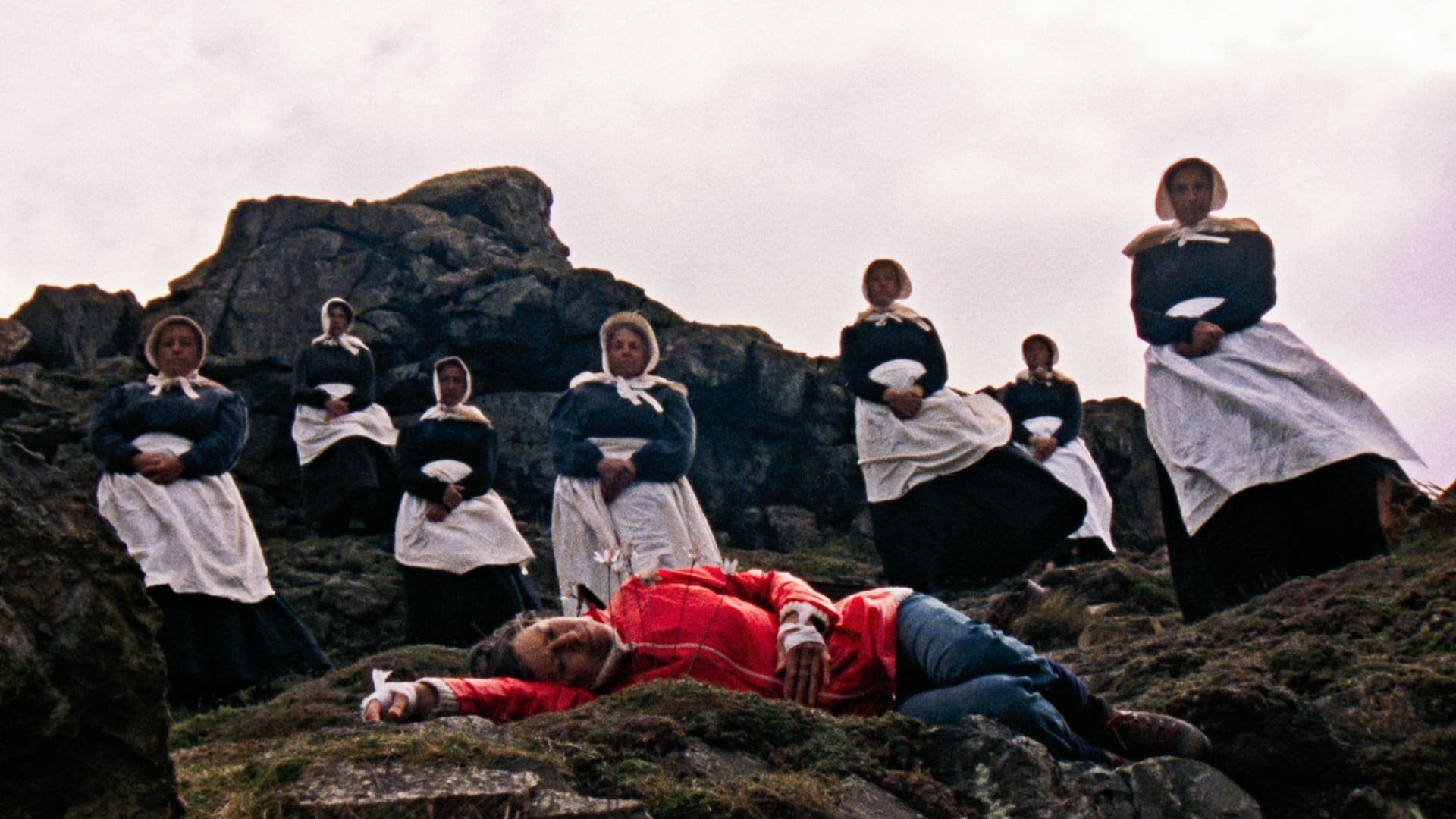Enys Men
NEONAfter the cultural and critical success of Cornish director Mark Jenkin's directorial debut Bait, all eyes were firmly peeled on what his sophomore effort would take shape as. To his credit, Jenkin once again goes back to his Cornish roots, this time with folk tale horror Enys Men. Sadly, not only does Jenkin's feature feel like a ninety-minute slump but throughout is heartbreakingly almost inaccessible for most if not all audiences.
In a similar vein to Bait, Enys Men looks outstanding with its 1970s aesthetic. Instead of the dread and isolation of monochrome used in the latter, Jenkins switches the palette to bright, beautiful colours to tell this story. All of this is caught to perfection by Jenkin himself as director of photography, but equal credit needs to be shared with production designers Joe Gray and Mae Voogd who utilise the setting to a fabulous degree, using restraint and the tremendous beauty of the Cornish sea and greenery. All in all, the isolation within this period, the pop of colour, and the film grain add such texture and weight without even a word said. Unfortunately, that is Jenkin's film's biggest issue – or at least major one of them.
Showing but not speaking – or the limited use of exposition – is a cinematic art form in its own right. Here, for what is ninety minutes of style and aesthetic, is crafted to ultimately convey character and narrative form. That issue is that there feels absolutely no substance to this at all and all it conveys is an inadvertent sense of pretentious egotism. Bait did this tremulously but it utilised a strong, engaging and emotional narrative underbelly in which the aesthetic didn’t feel compromised but elevated. Jenkin, in his best effort, tried to tell this story through visual digestion. But vague frames stitched together only go on to create vague sequences, ultimately creating a vague experience, and for ninety minutes this does not particularly create an engaging or rewarding experience for the viewer – those managing to stick with it aren’t rewarded for their efforts either. It is this inaccessible story that alienates the viewers most, past the visuals and Mary Woodvine's performance, all this feature rests on is its story and that is just a lucid fever dream.
Furthermore, Enys Men falls short in narrative depth; the simple answer being it doesn’t have any. For what is essentially fifteen minutes of actual narrative and character depth, Jenkin squeezes this out over an hour and a half. Not only is that such a push for the feature to handle within itself but good forbid for an audience member to handle is going above and beyond. Sequences, or best described as self-contained set-pieces, are here in very small quantities and, again, while they are stylistically engaging with how Jenkin composes said scenes, they add very little to the nature of proceedings or the thematic level of what the picture is provoking. Enys Men does this three or four times with more wildly contradictory frames to provide a sense of meandering mystery and conscious contradiction to perhaps what and where this story is advancing but nothing is ever engrossing or remotely foreboding.
Mary Woodvine has very little to do here with Jenkin’s infamous form of dialogue and delivery programmed in such a way that the feeling of engagement feels ever so stagnated and methodical with little authenticity and, therefore again, emotional connection to what is being said and provoked. Granted, Woodvine has an ice-cold visual demeanour which undoubtedly provokes a visual sense of torment and engagement. It is audible and visual cues that are overcompensated to cover and mask these elements of production that are not crafted to project these segments to begin with. It begs the question of to what degree is Enys Men truly working, because like Ben Wheatley’s In the Earth or Alex Garland’s Men, folklore tales of English nature do so little to craft substance and merit, be that the initial material struggled to be elevated or the fact that by its very nature, it is inaccessible.
It is extremely difficult to view Enys Men and not feel as if it has been crafted with pretentious ego but, all in all, this sentiment feels unfair. To director Mark Jenkin's credit, he crafts Enys Men on his terms without exception, following through with this idea until the execution. Granted, most if not all of Enys Men does not work, but nevertheless, it feels as if Jenkin is making this his way and that can only be commended. Speaking of Ben Wheatley creating his eerily similar folk horror, A Field In England, it had to be made then and there in a world that afforded the chance for it to be made, otherwise it would have never come to fruition. So perhaps, in a strange way, due to the success of Bait, Jenkin has had the opportunity to craft a Cornish folk tale in his vision – an inaccessible, rigid, and excruciating one to watch at that.


